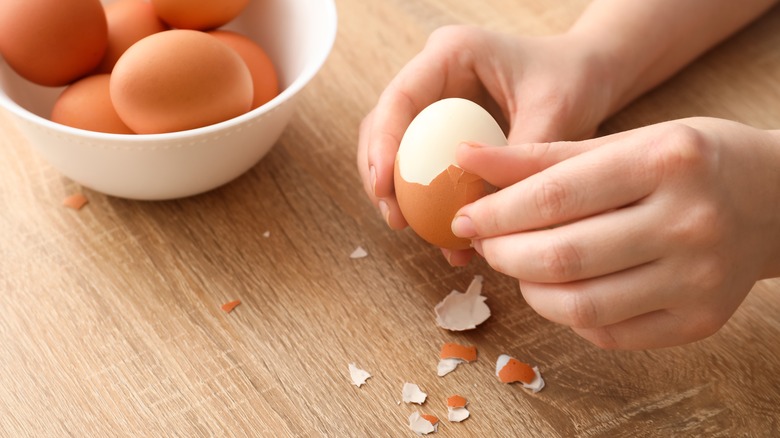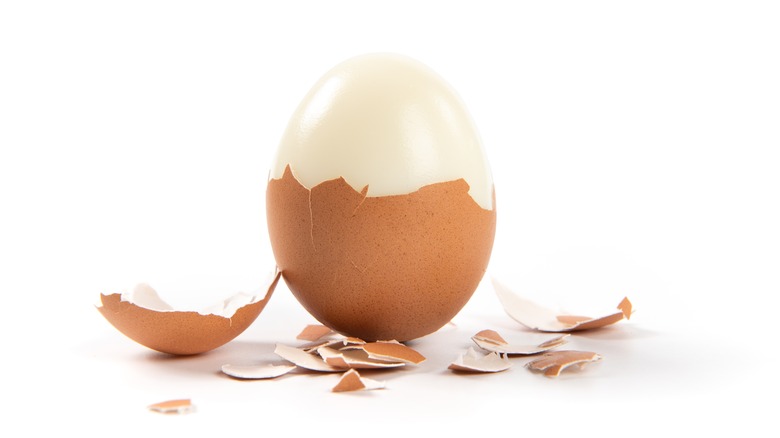Does Vinegar Make Peeling Hard-Boiled Eggs Easier?
While some people swear by the crack-and-peel method for handling hard-boiled eggs, there is an easier (and less messy) way to get the job done. Adding vinegar softens eggshells, according to Juan Silva, a professor of food and science technology at Mississippi State University. "The eggshell is made of calcium carbonate ... and adding vinegar to the water will dissolve some of the calcium carbonate," said Silva. The result is a softer shell primed for easier peeling.
Several factors can affect the peeling process, including how the egg has been stored and its age. For instance, older eggs peel more easily. "As time goes by, the albumin [protein] starts to break down, and thus, upon boiling, the shell will come off easier," said Silva. Another method he recommends is to add sodium carbonate, also known as washing soda, to the water, which will increase the acidity of the eggs. This also helps break down the protein that holds the egg to the shell.
Other ways to peel hard boiled eggs
Using vinegar is one smart way to accomplish the sometimes tedious task of peeling hard-boiled eggs, but it isn't the only option. Alternatively, you can cook eggs in boiling water, then rapidly dunk them in cold water (with or without ice) and peel. The cooling process allows the inside of the egg to shrink faster than the shell, which is less prone to expansion and contraction. Therefore, the egg will not be as tightly adhered. However, time is of the essence: The ice water step must be done quickly because, if you wait too long, the insides of your eggs will expand and reattach to the shell once more.
Two other techniques involve a spoon and a jar. With the spoon method, you want to be careful not to impale the egg as you gently crack it, wedge the spoon between the shell and the egg, and carefully peel it. To try the jar method, find a clear glass jar, fill it with a small amount of water, and place the egg inside. Use medium force to shake the jar, monitoring the cracks in the shell as you go, then remove the egg and peel it. While effective, these strategies may require patience and, occasionally, some water pressure to rinse your freshly peeled eggs until they're clean and shell-free.

